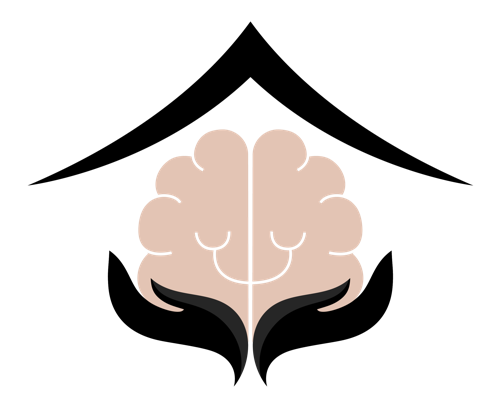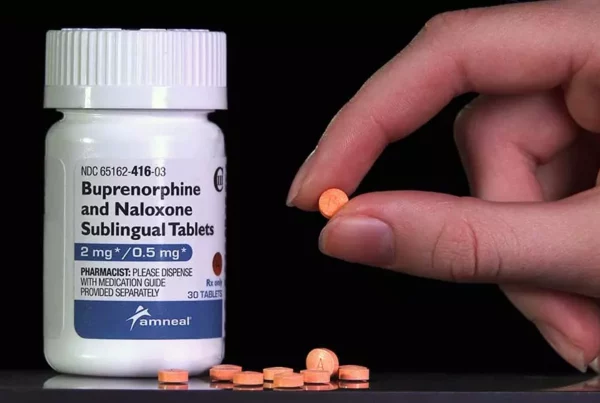According to the World Health Organization, depression affects over 264 million people worldwide, making it one of the leading causes of disability globally. Although various treatment options exist, a significant number of individuals do not respond adequately to traditional antidepressant therapies, leading to the emergence of treatment-resistant depression. In recent years, Ketamine Treatment has emerged as a groundbreaking and innovative approach in addressing treatment-resistant depression and mood disorders.
Understanding Ketamine Treatment
Ketamine, initially developed as an anesthetic in the 1960s, has gained significant attention for its remarkable effects on mental health conditions. Through extensive research, scientists have discovered that Ketamine Treatment goes beyond its anesthetic properties and acts on specific receptors in the brain, influencing the transmission of glutamate, an important neurotransmitter. This unique mechanism of action sets it apart from traditional antidepressant medications, such as selective serotonin reuptake inhibitors (SSRIs), which target the modulation of serotonin.
Ketamine Treatment for Depression
One of the most promising applications of Ketamine Treatment lies in its profound impact on depression. Numerous studies have demonstrated that it can rapidly alleviate depressive symptoms, offering a lifeline to individuals who have previously had limited success with other treatments. The effects of Ketamine Treatment for depression are often noticed within hours or days, compared to weeks or months typically associated with traditional antidepressants. This rapid improvement is particularly critical for individuals experiencing severe depressive episodes or those at an increased risk of self-harm.
With its unique ability to act on glutamate receptors, it has the potential to restore disrupted neural connections, promoting neuroplasticity and facilitating the formation of new neural pathways. These effects contribute to the long-lasting antidepressant effect of Ketamine Treatment, extending beyond the immediate infusion period. It is important to note that the lasting benefits of Ketamine Treatment for depression may vary depending on individual factors, and ongoing research aims to establish optimal treatment protocols and dosages.
Benefits of Ketamine Treatment
Apart from its efficacy in battling treatment-resistant depression, Ketamine Treatment has shown promise in addressing a range of mood disorders. Clinical trials and anecdotal evidence have reported positive outcomes in the treatment of conditions such as bipolar disorder, post-traumatic stress disorder (PTSD), and obsessive-compulsive disorder (OCD).
Another significant advantage is its potential to provide relief from suicidal ideation. Studies have shown that the rapid response to this treatment can swiftly reduce suicidal thoughts, offering hope and potentially saving lives in critical situations. This unparalleled effect on suicidal ideation differentiates Ketamine Treatment from traditional antidepressants and underscores its groundbreaking potential in mental health care.
Furthermore, Ketamine Treatment exhibits a favorable safety profile when administered under proper medical supervision. Side effects, if any, are usually minimal and transient, including feelings of dissociation, dizziness, or mild increases in blood pressure. However, it is crucial for patients to undergo a comprehensive pre-treatment evaluation, including medical and psychiatric assessments, to identify potential contraindications and ensure the safe and effective utilization of this treatment modality.
Ketamine Treatment represents a revolutionary approach in addressing treatment-resistant depression and mood disorders, offering hope and a new lease on life for individuals who have struggled to find relief from traditional treatment methods. With its rapid and long-lasting effects, It provides an innovative solution that goes beyond the limitations of traditional antidepressants. Ongoing research and advancements in this field continue to expand our knowledge, optimizing treatment protocols, and further establishing the role of Ketamine Treatment in mental health care. If you or someone you know is struggling with treatment-resistant depression or a mood disorder, exploring treatments under the guidance of a qualified healthcare professional may prove to be a transformative step towards recovery.
Ketamine Treatment Process
Ketamine Treatment, administered in a controlled medical setting, typically involves a series of intravenous (IV) infusions. The dosage and duration of treatment vary depending on individual needs and the severity of the condition. During the Ketamine Treatment process, patients are closely monitored by healthcare professionals to ensure safety and optimal outcomes.
The use of Ketamine Treatment for depression follows a personalized approach. A detailed evaluation, including medical and psychiatric assessments, is conducted to determine the suitability of the treatment. This thorough assessment helps identify any potential contraindications and establish appropriate treatment protocols.
Once deemed eligible for Ketamine Treatment, patients undergo a series of sessions spaced over several weeks. A typical Ketamine Treatment course consists of around six infusions, although this may vary based on individual response and treatment goals. Each infusion session lasts around 40 minutes to an hour, during which patients receive the predetermined dosage based on their specific needs.
These treatment sessions take place in a calm and supportive environment, allowing patients to relax and minimize any anxiety or discomfort they may experience. Healthcare professionals remain present throughout the infusion, continuously monitoring vital signs and providing emotional support.
Evidence and Success Stories
The evidence supporting the efficacy of Ketamine Treatment for depression and mood disorders continues to grow. Numerous clinical studies have demonstrated the significant and rapid antidepressant effects of Ketamine Treatment. These studies consistently report a substantial reduction in depressive symptoms, with some patients experiencing complete remission.
Success stories from individuals who have undergone Ketamine Treatment for depression further highlight its transformative potential. Many previously treatment-resistant patients have reported significant improvements in their mental well-being and quality of life after receiving Ketamine Treatment. These inspiring accounts offer hope to those who have felt discouraged by conventional therapies.
In addition to depression, Ketamine Treatment has shown promise in addressing other mental health conditions. Studies have indicated its effectiveness in the treatment of bipolar depression, offering an alternative for individuals who struggle with this challenging form of mood disorder. Furthermore, research suggests that this treatment may benefit those with post-traumatic stress disorder (PTSD) and obsessive-compulsive disorder (OCD), presenting new avenues for therapeutic intervention.
The success of Ketamine Treatment can be attributed not only to its rapid onset of action but also to its potential to sustain long-term improvement. While traditional antidepressants often require continuous daily use, it may provide lasting relief for weeks or months with just a series of infusions.
As the scientific community recognizes the tremendous potential of Ketamine Treatment, ongoing research aims to refine treatment protocols and identify the most suitable candidates. This continuous investigation into the efficacy and safety is crucial for advancement and incorporation into mainstream medical practice.
Conclusion
Ketamine Treatment is an innovative and groundbreaking approach in the realm of mental health, particularly for those with treatment-resistant depression and mood disorders. With its rapid and profound antidepressant effects, it offers hope to individuals who have not responded well to traditional therapies. The personalized approach and careful monitoring during the process ensure safety and maximize potential benefits.
Research and clinical studies continue to demonstrate the effectiveness of Ketamine Treatment for depression, supporting its position as a valuable treatment option. It is important to mention that Ketamine Treatment, although showing immense promise, is not yet considered a first-line treatment and should be administered under the supervision of qualified healthcare professionals.
As advancements in this field continue, the potential applications of Ketamine Treatment expand to other mental health conditions, paving the way for more innovative approaches in addressing treatment-resistant disorders. By embracing this breakthrough treatment option, individuals dealing with depression and mood disorders can embark on a journey towards improved mental well-being and a brighter future.



